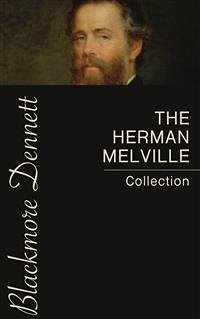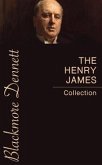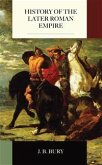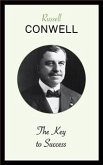Herman Melville was an American novelist, short story writer, and poet of the American Renaissance period. Among his best known works are Typee, a romantic account of his experiences of Polynesian life, and his whaling novel Moby-Dick.
Melville was born in New York City, the third child of a merchant who dealt in French dry goods and his wife. Years as a common sailor from 1839 to 1844 were the basis of his early writings. His first book was Typee, a highly romanticized account of his life among Polynesians. It became such a best-seller that he wrote the sequel Omoo. These successes gave him the financial basis to marry Elizabeth Shaw, daughter of a prominent Boston family, but the success proved hard to sustain. His first novel that was not based on his own experiences was Mardi, a sea narrative that develops into a philosophical allegory—but it was not well received. He received warmer reviews for Redburn, a story of life on a merchant ship, and his 1850 description of the harsh life aboard a man-of-war in White-Jacket, but they did not provide financial security.
Moby-Dick, although now considered one of the great American novels, was not well received, and critics scorned his psychological novel, Pierre: or, The Ambiguities. From 1853 to 1856, Melville published short fiction in magazines, most notably "Bartleby, the Scrivener", "The Encantadas", and "Benito Cereno". These and three other stories were collected in 1856 as The Piazza Tales. In 1857, he traveled to England and then toured the Near East. The Confidence-Man was the last prose work that he published.
Melville was born in New York City, the third child of a merchant who dealt in French dry goods and his wife. Years as a common sailor from 1839 to 1844 were the basis of his early writings. His first book was Typee, a highly romanticized account of his life among Polynesians. It became such a best-seller that he wrote the sequel Omoo. These successes gave him the financial basis to marry Elizabeth Shaw, daughter of a prominent Boston family, but the success proved hard to sustain. His first novel that was not based on his own experiences was Mardi, a sea narrative that develops into a philosophical allegory—but it was not well received. He received warmer reviews for Redburn, a story of life on a merchant ship, and his 1850 description of the harsh life aboard a man-of-war in White-Jacket, but they did not provide financial security.
Moby-Dick, although now considered one of the great American novels, was not well received, and critics scorned his psychological novel, Pierre: or, The Ambiguities. From 1853 to 1856, Melville published short fiction in magazines, most notably "Bartleby, the Scrivener", "The Encantadas", and "Benito Cereno". These and three other stories were collected in 1856 as The Piazza Tales. In 1857, he traveled to England and then toured the Near East. The Confidence-Man was the last prose work that he published.









